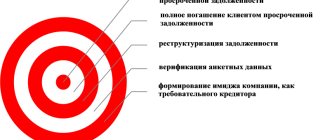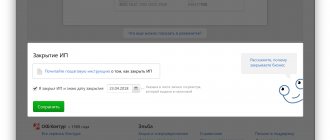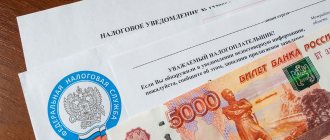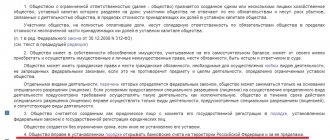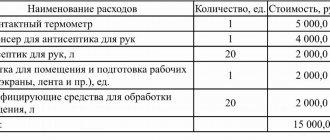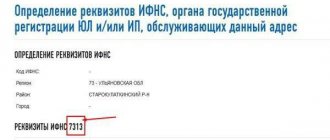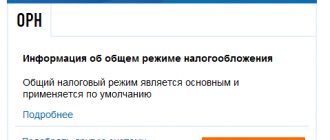What restrictions do bailiffs impose for debts?
The Law “On Enforcement Proceedings” allows bailiffs to:
- seizure of the debtor's bank accounts and debiting funds from them;
- seizure of the debtor's property, foreclosure on it with subsequent sale;
- restriction of the right to travel abroad;
- temporary revocation of a driver's license;
- initiation of a criminal case for malicious failure to comply with a court decision.
One of the most unpleasant restrictions, of course, is the ban on any departure from the country for 3 years. Of course, there are exceptions (for example, traveling for emergency treatment), but these cases must be confirmed by a huge number of official documents.
Moreover, malicious evasion of payment of a number of debts (for example, alimony ) aggravates the situation. From civil it can be transferred to the category of criminal, and the debtor himself is put on the wanted list.
Find out the debt from the bailiffs
Debt from bailiffs
Currently, there will be no quiet life if you have debts. Bailiffs are actively working to enforce the collection of court debt for unpaid timely loans, administrative fines, tax debts, alimony and other debts. On any day, after the initiation of enforcement proceedings, bailiffs can come to your home or work, accompanied by police officers, seize bank accounts or property, stop on the road and seize your car to pay off a debt, ruin your vacation by imposing a ban on travel abroad.
How to find out your debt from bailiffs? How to pay off debts and live in peace?
The official website of No Penalty will help you in timely receipt of information about the debt from the bailiffs and its payment!
Powers of bailiffs to collect debts
The bailiff initiates enforcement proceedings on the basis of a writ of execution at the request of the claimant. In some cases, enforcement proceedings are initiated on the basis of a judicial act (court order), acts of other bodies and officials in cases of administrative offenses. The bailiff is obliged to send the debtor a decision on its initiation and provide a period for voluntary repayment of the debt. As a general rule, the period for voluntary execution is five days from the date the debtor receives the order to initiate enforcement proceedings. After this period, the bailiff resorts to measures of forced collection of the debt owed by the debtor. The measures that, in accordance with the law, can be used to collect debt are quite varied:
- seizure of the debtor's bank accounts and debiting funds from them;
- seizure of the debtor's property, foreclosure on it with subsequent sale;
- imposing a ban on traveling abroad;
- temporary revocation of a driver's license;
- initiation of a criminal case for malicious failure to comply with a court decision.
In general, the consequences for a debtor who does not pay off a court debt during enforcement proceedings are extremely unpleasant. Imagine the situation: you have gathered with your whole family to relax abroad, and when going through passport control at the border of the Russian Federation, you find out that there is a ban on traveling abroad, since there are unpaid debts to the bailiffs that you did not even suspect (for example, traffic police fines that were not paid on time or unpaid taxes). The vacation will definitely be ruined.
We recommend taking care of yourself and your loved ones in advance. Finding out the debt from the bailiffs is a procedure that will not take much time, but will subsequently save a lot of nerves.
How to find out the debt from the bailiffs? How to pay off debts?
There are several ways:
- Difficult: you can personally visit the department (division) of bailiffs of the FSSP of Russia, located in your city or district. If it turns out that there are unpaid debts, you will be given a receipt, for payment of which you will need to contact the bank. The money paid according to the receipt will be credited to the deposit account of the department (division) of the FSSP of Russia, and then transferred to the claimant. This whole procedure will take quite a lot of time.
- Simple: you can find out the debt to the bailiffs on our official website in the section: Checking the debt to the bailiffs is the easiest and most convenient way! The service allows you to find up-to-date information (we receive it directly from the Federal Bailiff Service of the Russian Federation and the State GIS GIP system) about debt to bailiffs by last name, first name, patronymic and date of birth. By filling out this information in the form, you will receive information about your existing debt.
- Similarly, it is possible to check the debt of bailiffs on the official website of the FSSP of Russia - Fssprus ru.
You can pay your existing debt under enforcement proceedings immediately on our website, before the information about the amount of debt loses its relevance. Finding out your debts and paying them right now means securing your future! However, if, after checking the debt, you do not agree with the amount of debt to the bailiffs or believe that some actions or inactions of the bailiffs are illegal or unreasonable, committed by them in excess of their powers, you can contact the lawyers of the Penei portal no, by writing to them in the chat directly on the site.
Amounts of debt for which the bailiffs are taken
Let us remind you that enforcement proceedings begin with the following amounts of debts:
- 10,000 rubles for alimony;
- 30,000 rubles for traffic police fines, credits, loans, taxes, utility bills, etc.
In order not to pay debts to bailiffs legally, an individual or legal entity will have to begin bankruptcy proceedings. But its essence is debt restructuring and the same sale of property at auction, which covers debts. Therefore, be realistic, check your debts through bailiffs on time and pay them.
How to pay a debt to bailiffs?
Paying debts to bailiffs is also a simple procedure. You can take the details and amount of the debt from the bailiff service and pay off the debt at the nearest bank.
You can also pay your debt online. If you have unpaid fines displayed in the previous paragraph, then you probably noticed that next to each fine there is a Pay button.
There are a lot of payment methods. This is payment by card, Webmoney, Qiwi, from a mobile phone account. Please note that a transaction fee may apply. In addition, the service allows you to generate a receipt for payment. You can print it out and pay at the bank.
Be careful when paying your debt online. Check all your data, otherwise you can pay off the debts of your namesake.
How do bailiffs impose restrictions on debtors?
Bailiffs begin work only on the basis of a court order. In other words, the fact of non-payment must first be confirmed. And to do this, the party who suffered the damage must file a lawsuit - and this could be either a mother who does not receive child support, or a bank to which a person took out a loan and does not pay it back.
After the decision on collection is issued, the writ of execution is transferred to the FSSP (Federal Bailiff Service of the Russian Federation). And they begin enforcement proceedings - debt collection.
All information about current debts is located in the Bank of Enforcement Proceedings of Bailiffs. Let us remind you that information about the debtor, the writ of execution, and the initiated proceedings is entered into the database. Therefore, knowing only the last name of the debtor, it is impossible to get a complete picture of from whom, in what volume and on what grounds the collection is being made. For adequate verification, the debtor's full name, date of birth and regional reference are required.
What to do if the debt is paid?
Some tips on how to do it right.
- It is better to pay online with a bank card;
- After payment, make a payment certificate in web banking - download and print.
- If you can’t make a certificate online, go to the bank and do it at a branch.
- Mandatory information in the certificate - full name, payment amount, date of payment, if a comment on the payment is possible - will not hurt, and most importantly, a “wet” stamp from a bank employee.
- Having taken a certificate from the bank, we go to the bailiff, who is conducting enforcement proceedings.
- The bailiff is obliged to issue a ruling on the completion of enforcement proceedings and issue a copy.
How to find out your debts from bailiffs?
- You can check your debts through the official website of the FSSP or personally visit the bailiff office at your place of registration and clarify information about the presence/absence of debts on the spot. But this is not the only way to check debts.
- Tax debts can be found through the State Services website. To do this, you will need to register in your personal account and confirm your identity.
- Use the CheckPerson verification service, which allows you to conduct a comprehensive check. The service allows you to receive 100% reliable information from official sources in a matter of minutes. Another convenience is that in the report that will be sent to you by email, you will receive not only information about debts from bailiffs, but also information regarding credit rating, tax charges and other indicators that will help you draw objective conclusions regarding a person’s financial discipline. Do not forget to request written permission from a third party for verification. This way you will avoid violating the Federal Law “On Personal Data”.
How to check debts from bailiffs for legal entities
In order to find out about the presence of debts on a legal entity, you must also use the bailiffs website https://fssprus.ru/
To search by organization, after launching the site, you need to click on the “Advanced Search” button, after which switches will appear above the search form. There you need to select “Legal entity” and indicate the name of the organization, its address and region of location.
If the database contains information on enforcement proceedings, it will be displayed below.
Why is it important to find out your debts through the bailiffs in advance?
As a rule, finding out your debts from bailiffs is part of the deal. Then you need to pay for them and make sure that the names and surnames have been removed from the bailiff database. So that, for example, when going through customs, you can calmly go through control, because... restrictions on traveling abroad have been lifted.
Please note the time frame during which data on debtors is removed from the FSSP file. Payments for all types of debts are made electronically online. Bailiffs and the tax service process payments and remove information from the database within up to 10 working days, traffic police authorities make adjustments to the fines database within up to 5 working days. After processing payments, the debt in the database is canceled.
Improve your financial literacy ! Be aware of your debts and pay them off on time! Find out about your debts now.
Why is debt dangerous?
- A ban on traveling abroad if the amount of debt exceeds 10,000 rubles;
- There may be a restriction on vehicle registration; this often comes up when selling a car;
- Complete deprivation of a driver's license, or restrictions on driving from the FSSP;
- Full or partial seizure of residential property is possible;
- It is possible to write off funds from a bank account or bank card, including social benefits (pension, benefits, maternity capital, etc.);
- Problems getting a new loan or mortgage;
- You cannot legally change your place of registration.
A common situation is that a large part of the amount is written off from a bank card; in 95% of cases, the debt is written off by decision of bailiffs.
According to Federal Law dated October 2, 2007 N 229-FZ (as amended on July 18, 2017), 50% of the funds can be written off from a card or account, if it is a child support debt - up to 70%.
Which accounts are not subject to seizure?
Bailiffs have the right to seize found accounts of the debtor.
But there are restrictions according to which the following cannot be arrested:
- Bank accounts and cards to which child benefits and other social payments are transferred;
- Salary accounts;
- Salary bank cards.
Even if the bailiff issues a decree on their arrest, and the debtor proves that the account is a salary account or another one of those indicated in the list, the decree must be canceled and the arrest lifted. Let us explain this point in more detail.
Debt from social benefits, pensions or wages can be collected; the legislator allows this. But this must be done through the accounting department, which accrues them. In addition, the presence of a writ of execution does not give anyone the right to take away all the means of life from a person (if we are talking about an individual).
Example. The debtor has a salary of 20 thousand rubles. At the same time, he has two small children and a dependent close relative who is disabled. This means that more than 1/4 of the specified amount cannot be recovered.
